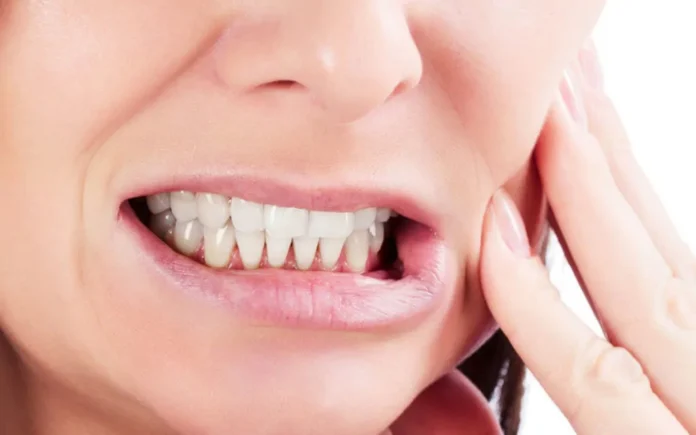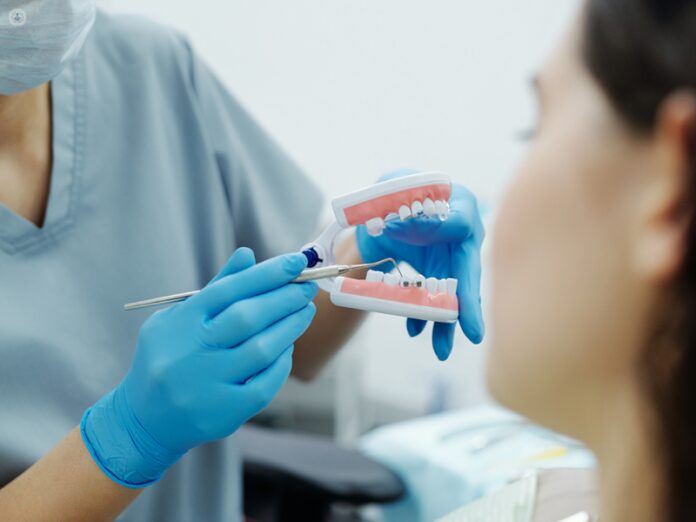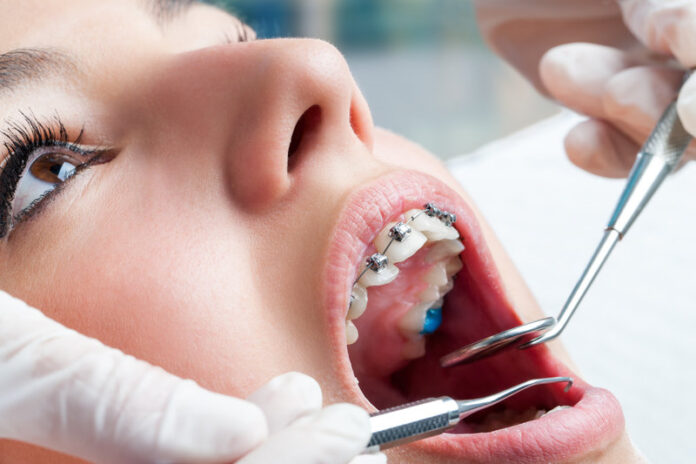Stress can significantly impact our dental health, even if it’s not immediately noticeable. It’s important to understand that oral and mental health are interconnected and cannot be treated as separate issues because one always affects the other.
This blog post will discuss how stress and anxiety can affect your dental health. We’ll also provide some tips on how you can effectively manage stress to improve your overall dental health. Keep reading!
How Stress and Anxiety Can Affect Dental Health?

Stress and anxiety are common issues that many people face daily. However, the effects of stress on oral health are not widely known. Studies suggest that those who experience stress are likelier to have poorer oral health than those who don’t. Here are some of the oral conditions that stress may exacerbate or cause:
Increased Risk of Gum Disease
Gum disease is a prevalent oral issue that impacts numerous individuals, and our immune system plays a crucial role in combating it. For instance, in the case of gingivitis, the immune system sends immune cells to counteract the bacteria. However, stress can lower the immune system, making it harder for the body to fight infections. This increases the risk of developing gum disease, leading to serious oral health problems if left untreated.
Clenched Jaws

Stress can manifest in a variety of physical symptoms, including jaw clenching. When you’re under stress, you may unconsciously clench your jaw, which can lead to a variety of oral health problems.
One of the most common issues associated with jaw clenching is temporomandibular joint disorder (TMJ), which can cause pain and discomfort in the jaw, face, neck, and shoulders. TMJ can also lead to headaches, earaches, and difficulty opening and closing your mouth. Chronic jaw clenching can also lead to muscle tension and pain in the jaw and neck, as well as a decreased range of motion in the jaw joint.
Teeth Grinding (Bruxism)

One of the physical manifestations of stress is teeth grinding or bruxism. Many people grind their teeth as a way to cope with stress, and they may not even realize they’re doing it. Teeth grinding can cause wear and tear on the mouth, tooth sensitivity, loose teeth, enamel damage, soreness in the jaw, and other problems.
Dry Mouth
Saliva plays a crucial role in keeping the mouth healthy and moist. However, stress and anxiety can affect the salivary glands, reducing saliva production. When the mouth is dry, plaque buildup is more likely to occur, leading to gum disease and other oral health problems.
Mouth Sores and Ulcers
Stress can also cause mouth sores and ulcers. Mouth ulcers are often linked to stress as a common cause. For example, canker sores are caused by a deficiency in vitamin B and mouth injury or irritation. Some studies suggest that stress can trigger canker sores and other types of mouth sores.
Tips for Reducing Stress and Improving Dental Health

While avoiding stress and anxiety altogether may not be possible, you can reduce their impact in several ways. This can involve participating in enjoyable activities or learning effective stress management techniques that work for you.
Practice Relaxation Techniques
Evidence shows that stress management techniques such as meditation, yoga, and deep breathing exercises can effectively reduce stress levels. These techniques have been shown to positively impact mental well-being by promoting a clearer mind and boosting energy levels, which can lead to a positive change in mood.
Visit an Orthodontist

If you’re experiencing dental problems that are caused by stress, it’s essential to seek help from an orthodontist. Orthodontists can give you professional advice on what to do to help protect your teeth when you are experiencing stress. By doing so, you can prevent dental problems and take steps toward improving both your dental and mental health.
Kumra Orthodontics is a top-rated orthodontist in Washington, DC. They have been in practice for years now and have already built a reputation for their excellent and quality orthodontic services. Schedule an appointment with them today to see how they can help you manage your stress and improve your overall oral health!
Exercise Regularly
Exercising is an excellent way to keep stress away and maintain good health. Exercise happy hormones called endorphins, which naturally boost your mood and help improve your sleeping patterns. Exercising also keeps your negative thoughts away and helps you stay grounded by making you focus on the exercises you need to do and staying present in the moment.
Commit to Lifestyle Changes
Making changes to our lifestyle can have a significant impact on our mental well-being. Engaging in unhealthy habits can lead to detrimental effects. To live a healthier lifestyle, consider finding an exercise routine that you enjoy and that fits your preferences. In addition, eating a healthy diet and getting enough sleep can also have a positive impact on mental health. If you experience difficulty sleeping, seeking medical advice from a physician can help you identify and address the underlying cause, potentially with the aid of medication.
Dental Care

Given that stress is an inevitable part of life and can have negative consequences on your oral health, it is equally important to find strategies to prevent these consequences as it is to manage stress itself. You can use a mouthguard at night to stop teeth from grinding. More importantly, visiting your Cornubia dentist or orthodontist can help address oral health issues, but it’s equally important to prioritize daily brushing and flossing as the foundation of dental care.
Prioritizing Mental and Oral Health for a Healthy, Attractive Smile
Recognizing the connection between mental and dental health and taking proactive measures to avoid negative consequences is crucial. Maintaining good oral hygiene and managing stress levels through exercise, meditation, or counseling can improve overall well-being and oral health. It’s also important to schedule regular dental checkups to catch and treat any potential oral health issues early. You can achieve a healthy and attractive smile by prioritizing your mental and oral health.









